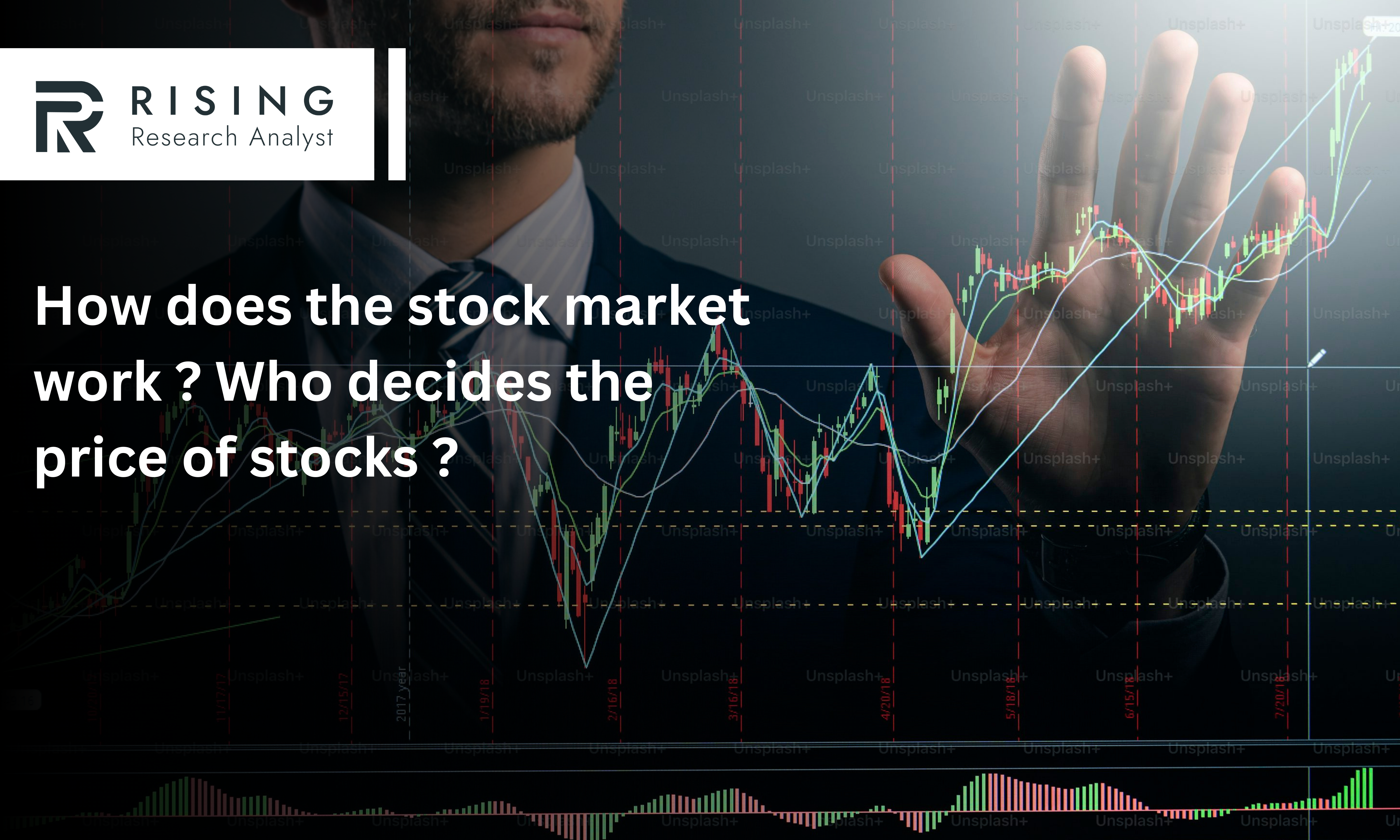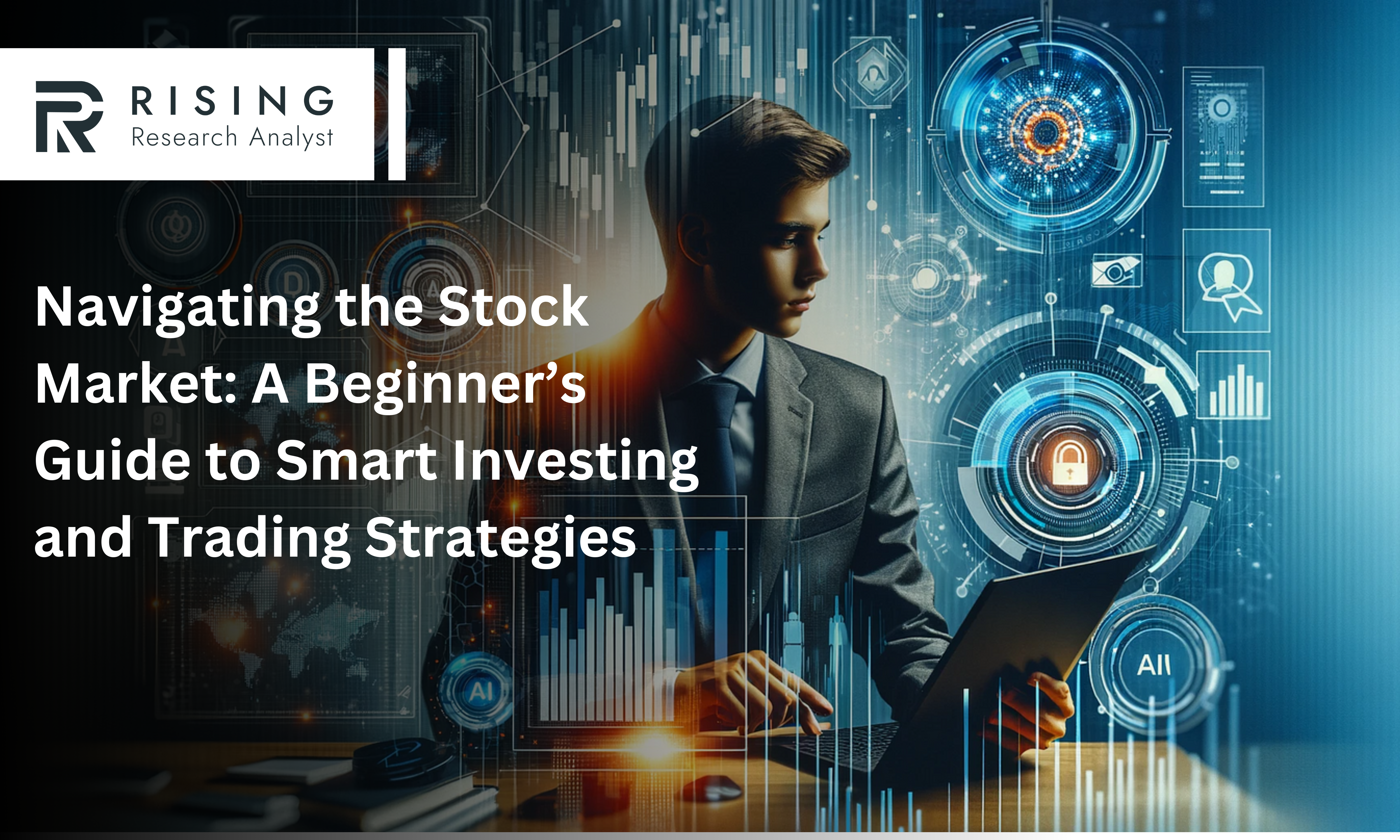
How does the stock market work? Who decides the price of stocks? What is the logic behind the valuat
The monetary trade gives a setting where associations raise capital by selling parts of stock, or worth, to monetary benefactors. Stocks give investors casting ballot rights as well as a lingering guarantee on corporate profit as capital increases and profits. Looking for the Best SEBI-registered stock market tips provider in India or the best stock market tips provider in India is a typical mission for financial backers.
Individual and institutional investors work together to buy and sell shares in a public market on stock exchanges. When you buy stock on the stock exchange, you are not getting it from the company; rather, you are getting it from an existing investor. So, if you're looking for the best stock tips provider in India, it's crucial to understand the stock market dynamics.
What Is a Stock?
A stock is a monetary instrument that addresses proprietorship in an organization or partnership and a proportionate case on its resources and profit. Stocks are likewise called offers or value.
Possessing stock implies that an investor claims a cut of the organization equivalent to the number of offers held as an extent of the organization's complete extraordinary offers
.An individual or substance that possesses 100,000 portions of an organization with 1,000,000 exceptional offers would have a 10% proprietorship stake in it. Seeking advice from a top-rated and most successful Research analyst in India can help navigate the complexities of stock ownership.
How Does the Stock Market Work?
By selling shares of stock, the stock market enables businesses to raise capital for operations and generates and sustains wealth for individual investors. Seeking guidance from the most successful stock advisor in India or a top-notch SEBI registered research analyst can provide valuable insights into navigating the stock market effectively.
Organizations fund-raise on the financial exchange by selling proprietorship stakes to financial backers. These value stakes are known as portions of stock.
By posting shares available to be purchased on the stock trades that make up the securities exchange, organizations gain admittance to the capital they need to work and grow their organizations without assuming obligation. In return for the honor of offering stock to general society, organizations are expected to uncover data and give investors a say in how their organizations are run. Consulting with the top-grade SEBI registered research analyst or seeking advice from the best SEBI registered stock advisory company can help in making informed investment decisions.
Monetary sponsor benefit by exchanging their money for shares in the protection trade. associations set that money to work creating and broadening their associations, monetary sponsor gets the compensations as their parts of stock become more critical long term, prompting capital additions. Also, organizations deliver profits to their investors as the benefits develop. To maximize returns, it's important to consider utilizing the services of stock market advisory services in India.
Although the overall performance of the stock market has historically rewarded investors with annual returns of approximately 10%, the performance of individual stocks varies greatly over time, making it one of the most reliable ways to grow your money. Seeking advice from the best SEBI registered Intraday tips provider can help capitalize on short-term market movements.
Who decides the price of stocks?
Share costs are set given various elements, including an organization's projected exhibition and its current worth. Initial share prices can also be affected by market news, supply and demand rules, and herd instinct.
Assuming interest is high, the value will in general go up, and on the off chance that supply is high, the value will in general go down.
The stock is the all-out number of offers, while the request is the quantity of offers that financial backers will purchase at a given cost.
Economic factors, industry performance, investor sentiment, company fundamentals, and other factors can influence stock prices. Understanding the logic behind the stock market requires insight into supply and demand dynamics, which can be provided by top-rated and most successful research analysts in India.
What is the logic behind the stock market?
As with any market, the stock market is generally driven by supply and demand. At the point when a stock is sold, a purchaser and dealer trade cash for share possession. The cost for which the stock is bought turns into the new market cost. At the point when a subsequent offer is sold, this cost turns into the most up-to-date market cost, and so forth.
The more interest for a stock, the higher it drives the cost as well as the other way around. The more inventory of a stock, the lower it drives the cost as well as the other way around.
Understanding the law of the organic market is simple; It can be difficult to understand demand. The value development of stock shows what financial backers feel an organization is worth — yet how would they figure out what it's worth? One component, is unquestionably, its ongoing income: how much benefit it makes. Be that as it may, financial backers frequently look past the numbers. In other words, the cost of a stock doesn't just mirror an organization's ongoing worth — it likewise mirrors the possibilities for an organization, and the development that financial backers expect of it later on.
The "bid" is the price that the potential buyers say they are willing to pay. The potential vendors declare a cost at which they might want to sell, known as the "inquiry." By making it easier for trades to take place between the two parties, a market maker in the middle works to increase liquidity.
Simply put, the stock price is determined by the ask and bid. A trade is when a buyer and a seller meet up, and the quoted market value is the price at which the trade takes place. That is the number you see sprinkled across TV paper feeds, web monetary entrances, and money market fund pages.
In the first place, understand that the financial exchange is essentially a sale, with one party needing to sell its proprietorship, and one party needing to purchase possession. At the point when the two concur upon a value, the exchange is coordinated and that turns into the new market citation. These purchasers and merchants can be people, enterprises, establishments, state-run administrations, or resource-the-board organizations that oversee cash for private clients, shared reserves, record assets, or annuity plans. You won't always know who is on the other side of the transaction.
Since the financial exchange capabilities are like a sale, when there are a bigger number of purchasers than there are vendors, the value needs to adjust or no exchanges are made. Investors who had not previously been interested in selling are now more likely to do so as a result of this tendency to drive the price up and raise the market quotation at which they can sell their shares. Then again, when dealers dwarf purchasers, there is a hurry to dump stock and whoever will take the most minimal bid sets the cost bringing about a rush to the base.





